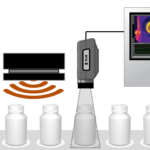Welcoming a new puppy into your home is an exciting and rewarding experience. Ensuring your puppy’s happiness and setting the stage for long-term pet ownership success requires thoughtful planning, consistent care, and a deep understanding of your furry friend’s needs. From the initial preparation to ongoing care, every step plays a vital role in nurturing a happy and healthy pet. This guide will outline the essential steps to achieve this goal, providing you with the knowledge and tools needed for a successful journey with your new puppy.
Preparing Your Home for a New Puppy
Before bringing your puppy home, make sure your living space is safe and welcoming. Start by puppy-proofing your home to protect both your belongings and your new pet. Secure loose wires, remove toxic plants, and ensure small objects that could be swallowed are out of reach. Create a designated space for your puppy, complete with a comfortable bed, food and water bowls, and a selection of toys.
Equipping your home with the necessary supplies is also crucial. Stock up on high-quality puppy food, treats, a collar, a leash, and grooming tools. Set up a cozy crate or a playpen where your puppy can feel secure and comfortable.
Establishing a Routine
Creating a consistent routine is fundamental for your puppy’s happiness and development. Puppies thrive on predictability, which helps them feel secure and understand what is expected of them. Set regular times for feeding, potty breaks, playtime, and training sessions. This routine will help your puppy learn good habits and build trust with you.
Feeding should occur at the same times each day, using a balanced diet appropriate for your puppy’s breed and size. Regular potty breaks, especially after meals and naps, will aid in-house training. Consistent play and exercise times will not only keep your puppy physically fit but also mentally stimulated and happy.
Socializing Your Puppy
Socialization is a critical aspect of raising a well-adjusted dog. Early exposure to different environments, people, and other animals helps prevent behavioral issues and fosters a friendly, confident demeanor. Begin socializing your puppy as soon as they are vaccinated and ready to explore the world.
Introduce your puppy to a variety of sights, sounds, and experiences. Take them on walks in different locations, invite friends over to meet them, and arrange playdates with other dogs. Positive experiences during this formative period will help your puppy develop into a well-rounded adult dog.
Training and Obedience
Training your puppy is essential for their happiness and your peace of mind. Start with basic commands such as sit, stay, come, and down. Positive reinforcement techniques, such as treats and praise, are highly effective in teaching these commands. Consistent training sessions kept short and fun, will keep your puppy engaged and eager to learn.
Enroll in a puppy training class for professional guidance and the added benefit of socializing your puppy with other dogs. Training not only teaches your puppy good manners but also strengthens the bond between you and your pet.
Providing Proper Healthcare
Regular veterinary care is crucial for your puppy’s long-term health and happiness. Schedule your puppy’s first vet visit within a week of bringing them home. This initial checkup will ensure they are healthy and up-to-date on vaccinations. Discuss a vaccination schedule, flea and tick prevention, and deworming with your vet.
Regular vet visits should continue throughout your puppy’s life. Annual checkups, dental care, and timely medical attention for any health issues are essential. Spaying or neutering your puppy, if not already done, is another important step for their health and well-being.
Nutrition and Exercise
A balanced diet and regular exercise are fundamental to your puppy’s physical and mental health. Choose a high-quality puppy food that meets the nutritional needs of your specific breed. Consult your vet to determine the appropriate portion sizes and feeding schedule.
Exercise should be appropriate for your puppy’s age and energy level. Daily walks, playtime in the yard, and interactive games will keep your puppy fit and happy. Mental stimulation is equally important, so provide puzzle toys and engage in training sessions to challenge your puppy’s mind. In addition, taking time to learn about Miniature Dachshund breeds can provide valuable insights into the specific needs and characteristics of this popular breed. This will ensure that you meet their unique requirements.
Building a Strong Bond
Developing a strong bond with your puppy is essential for their emotional well-being. Spend quality time together through play, training, and relaxation. Positive interactions, such as cuddling and gentle petting, reinforce the bond between you and your puppy.
Consistency in your interactions and care will help your puppy trust and rely on you. Be patient and understanding, as puppies are learning and growing every day. A strong bond will make your puppy feel secure and loved, contributing significantly to their overall happiness.
Ensuring your puppy’s happiness and achieving long-term pet ownership success involves careful preparation, consistent routines, proper socialization, effective training, comprehensive healthcare, balanced nutrition, and building a strong bond. By following these key steps, you’ll create a loving and supportive environment where your puppy can thrive. The journey may be challenging at times, but the rewards of a happy, healthy, and well-adjusted dog make every effort worthwhile. Embrace the adventure of puppy ownership and enjoy the many joys it brings to your life.











